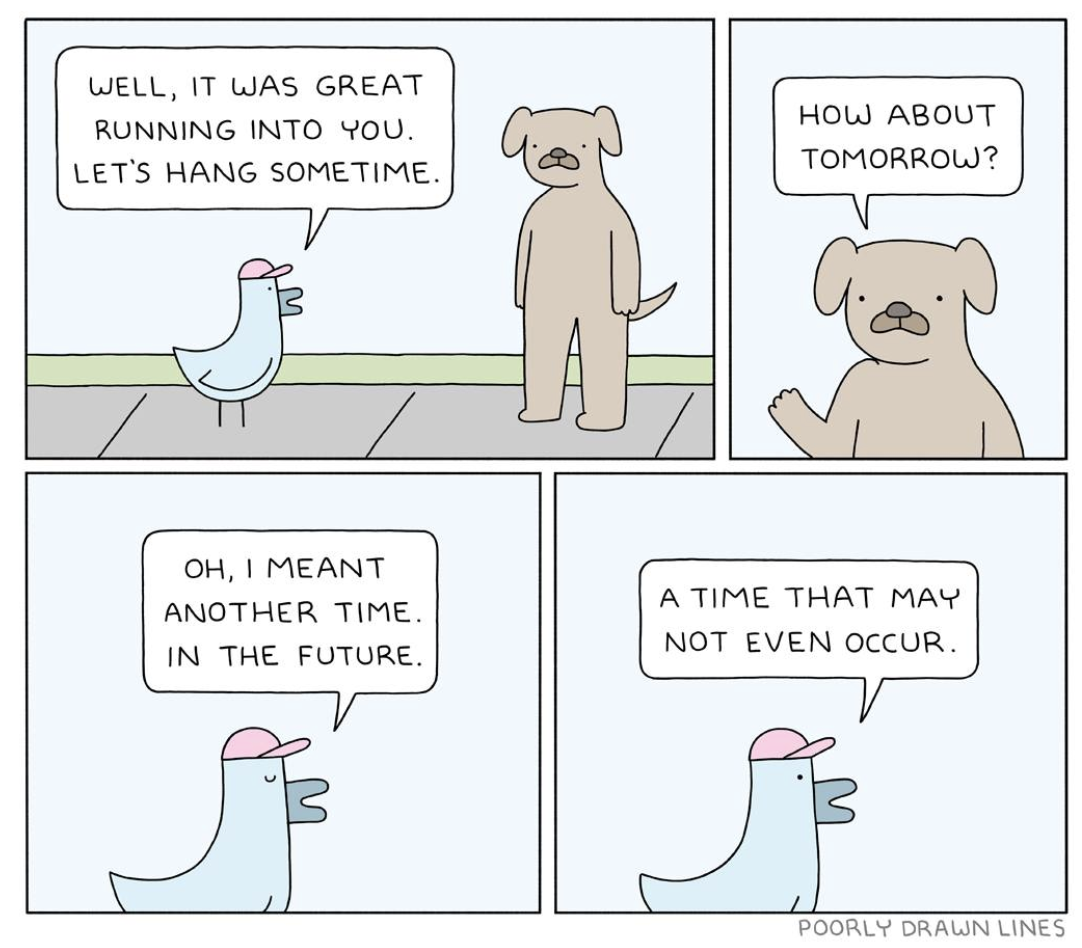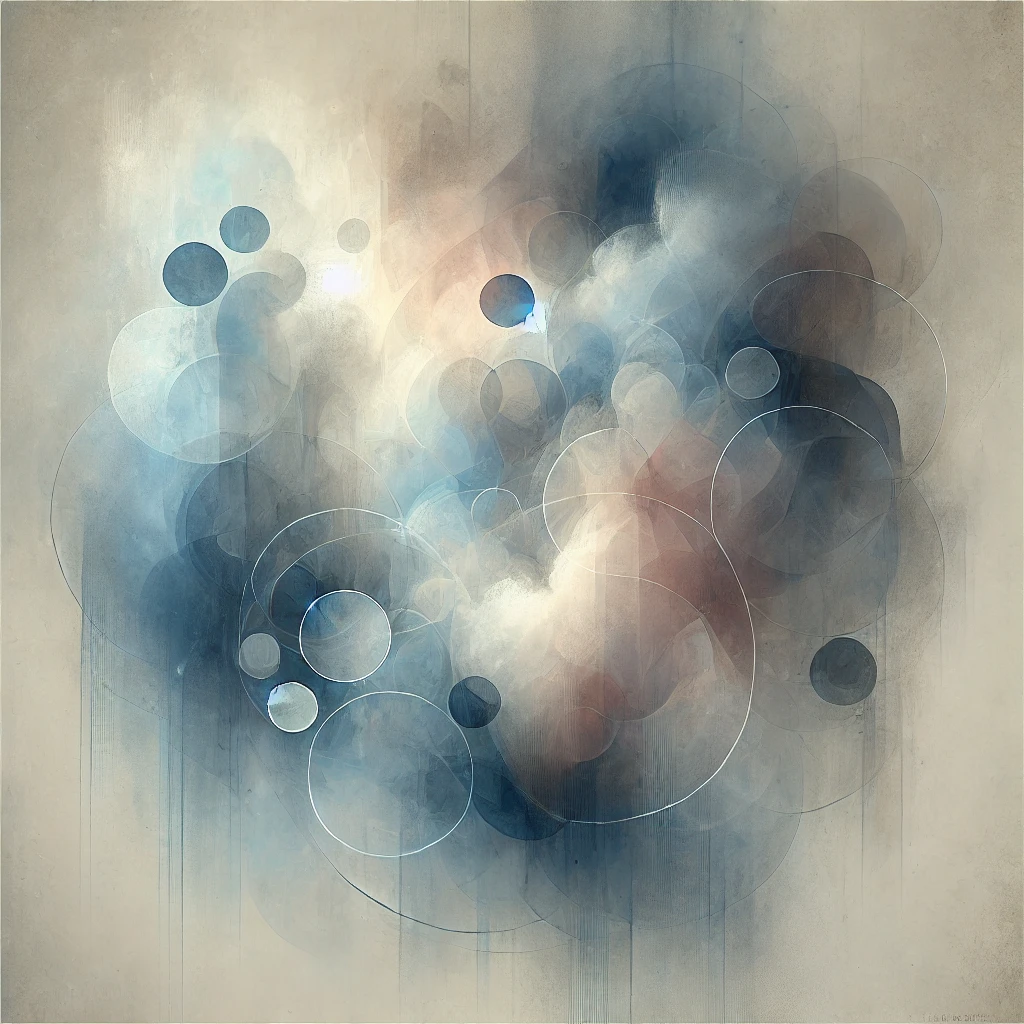the California No
The California No is an imperceptible rejection.
It's when someone responds with enthusiasm—but no real intention of following through.
Reza Farazmand captures it perfectly in this Poorly Drawn Lines comic:

Cloaked in vague enthusiasm, the California No goes like this:
Unsuspecting victim (UV): "Oh man, this was so fun! We should hang out again."
California No Perpetrator (CNP): "Yeah! I'd love that."
UV, later via text: "Hey! Would love to hang out. What's your week look like?"
CNP: "Hey! Super busy this week. Check in next week?"
UV, next week: "Coffee this week?"
CNP: No answer.
Let it fade. No confrontation, no hard feelings.
You might protest: People get busy. Some suck at texting. Maybe the message didn’t go through. Maybe they did want to hang out.
The keyword here is imperceptible. The rejection is subtle, even plausible. Sometimes, sure, life gets in the way.
Other times, they just don’t care. But saying "no" outright feels harsh. It’s easier to mirror interest, to feign enthusiasm. Rejecting someone—clearly and honestly—feels bad, for both the rejected and the rejector.
where it shows up
Musicians do this all the time. At gigs, I'll meet other artists, trade compliments, exchange contacts, and toss around a casual “We should jam sometime!” We follow each other on Instagram. Maybe I even reach out.
Then the scheduling process turns into herding cats. We both give up.
Or take another version: You express interest in meeting up. They reply, "Yeah, that'd be great!" Then… silence. No follow-through.
why we reject this way
Because it’s safer.
A direct rejection risks awkwardness. Ambiguity lets us dodge guilt, dodge discomfort. We get to keep the door technically open while avoiding any real commitment.
But this isn’t just a California thing. I saw a different version of it in India.
While traveling, I’d often get lost and ask for directions. People would confidently point me down a road, assuring me my destination was just ahead.
They were wrong. Over and over again.
I eventually realized they were intentionally giving me bad directions.
Why? In some cultural contexts, admitting “I don’t know” is embarrassing. Better to give an answer—any answer—than none at all.
It’s the same with the California No. A vague "yes" feels nicer than an honest "no." But in the end, both leave the other person more lost.
my confession
I do this, too.
If someone asks to hang out—even if I don’t want to—I rarely say, "No thanks." I stall. I hedge. I let things fizzle.
I tell myself it’s because I like keeping an open door. That if there’s any possibility of connection, I don’t want to shut it down prematurely.
But when I feel resistance to meeting someone, I ask: Why? Is it about them, or is it about me? More often than not, it has nothing to do with the other person at all.
the challenge
If you catch yourself giving a California No, pause. Ask yourself:
- Would saying “no” clearly and kindly be better than slow-fading them?
- Am I dodging discomfort at the expense of someone else’s clarity?
- Could following through open a door I didn’t expect?
Rejection doesn’t have to be cruel. It just has to be honest.
And if you’re on the receiving end? Maybe, just maybe, it’s time to stop following up.
